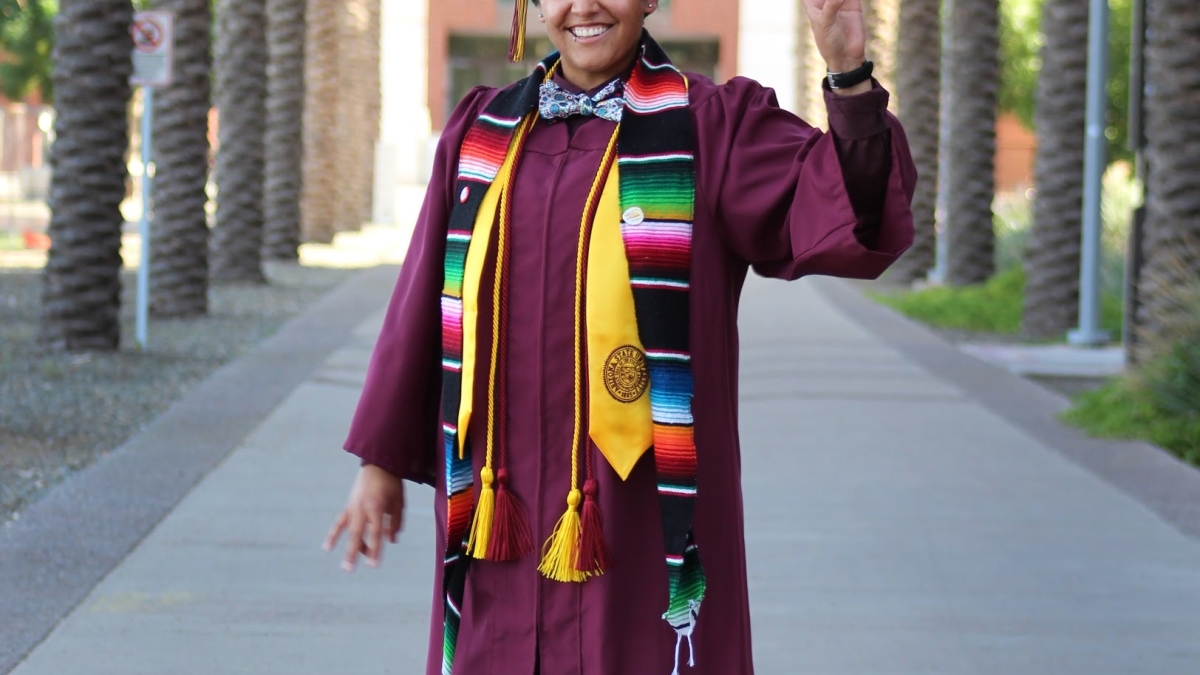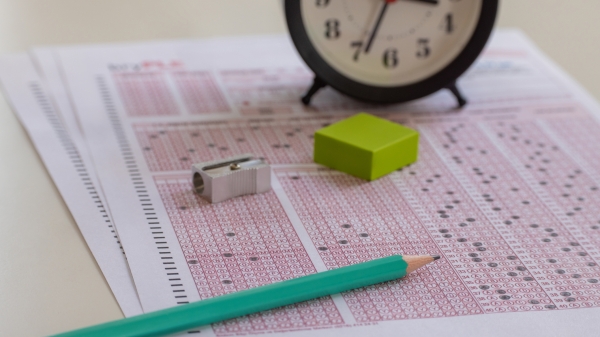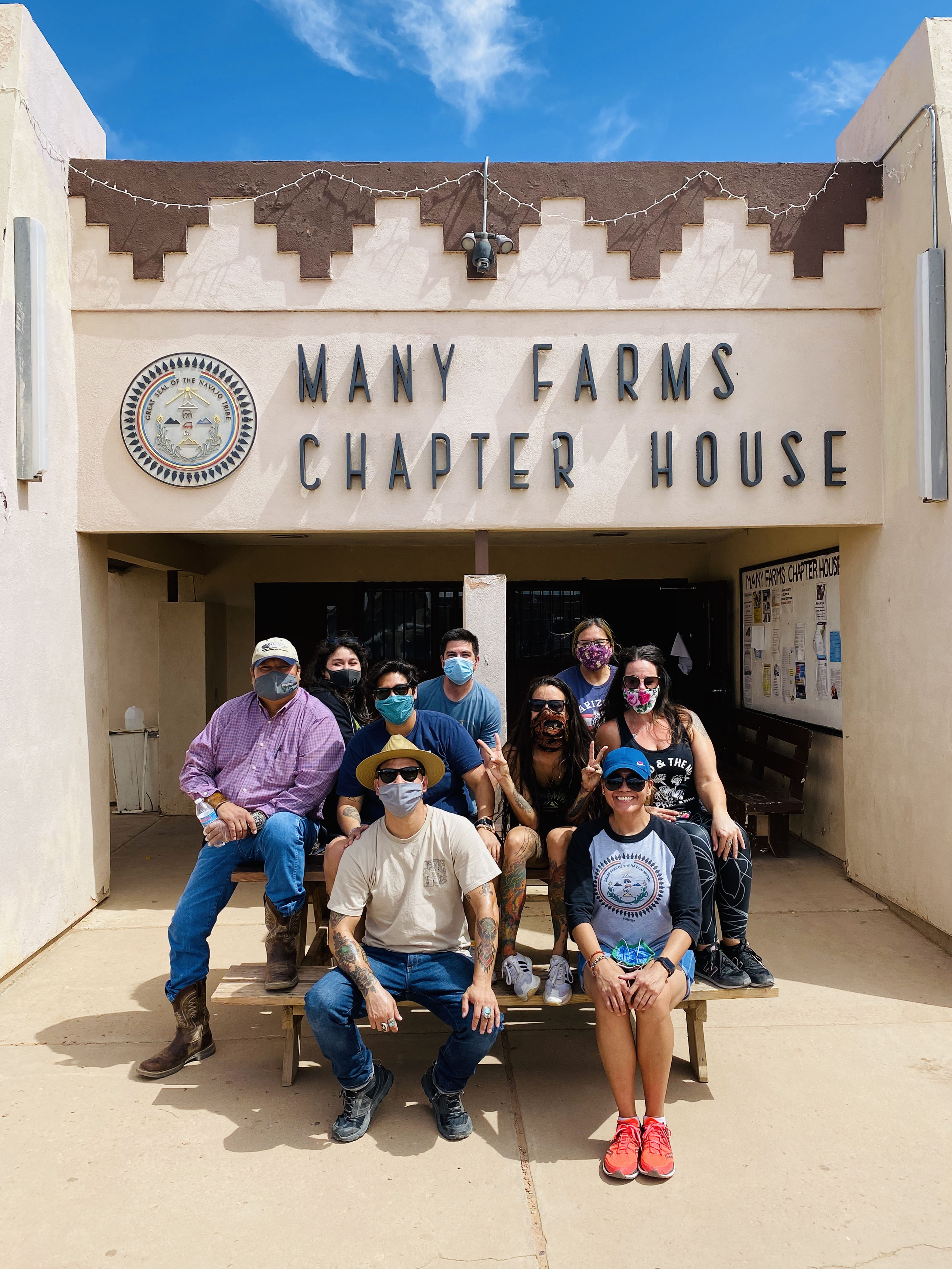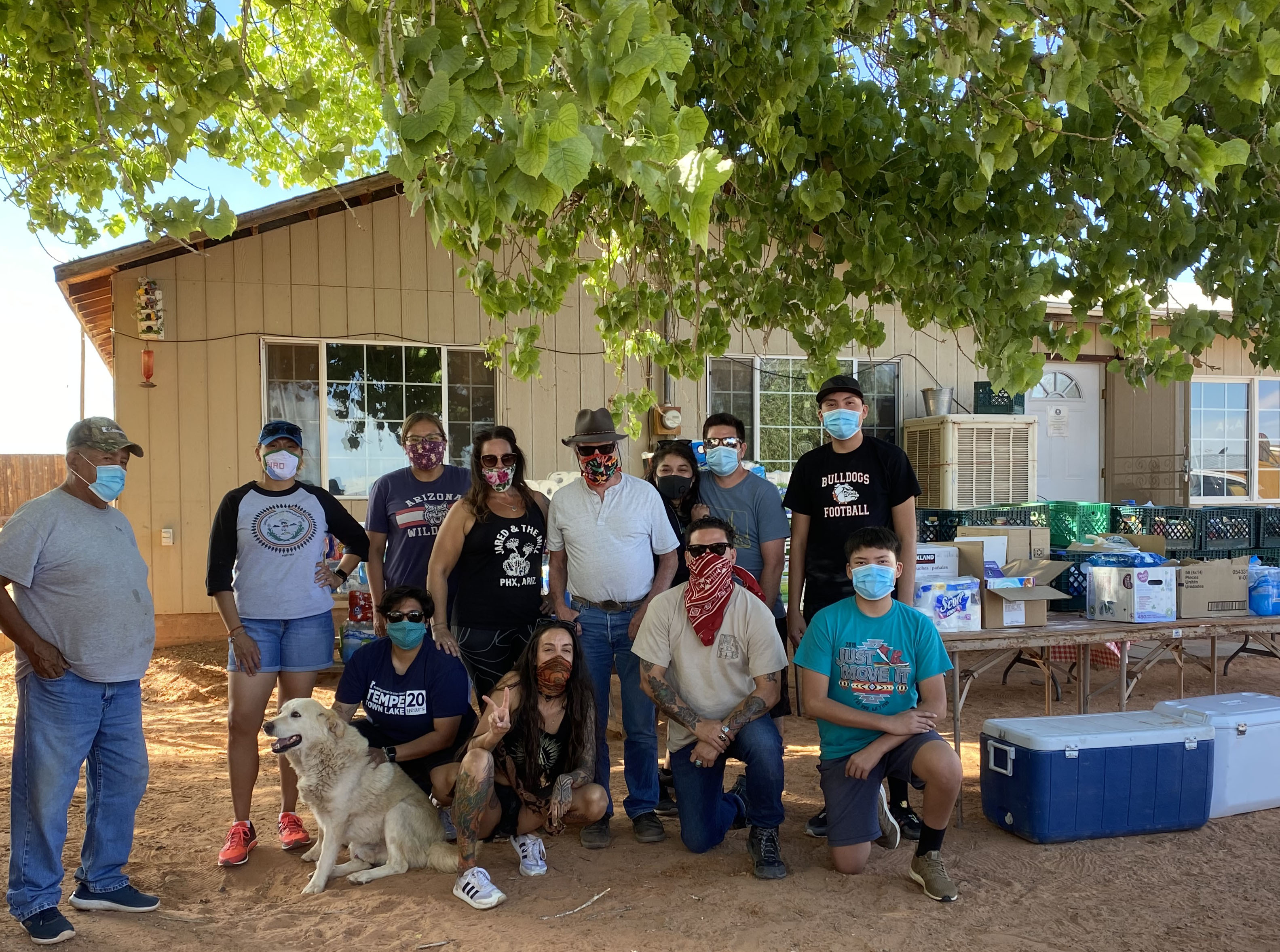ASU grad uses Spanish, leadership skills to support community amid pandemic

Lorena Austin, the dean's medalist for the School of Transborder Studies, has used her language and leadership skills to support local communities since graduation.
Lorena Austin’s initial plan after graduating from Arizona State University was to take a year off and study for the LSAT. Instead, the recent graduate immediately put her studies to work and began volunteering to support communities impacted by the COVID-19 pandemic.
Austin graduated in May as the dean’s medalist for the School of Transborder Studies with a bachelor’s degree in transborder Chicana/o and Latina/o Studies and a certificate in cross-sector leadership. She was in St. Louis, Missouri, during spring break, conducting interviews and research for her senior pro-seminar project when cases of the virus began to increase in the U.S. She flew back to Mesa prior to the state’s stay-at-home mandate and described the experience as a movie playing in slow motion.
Despite her fear of the unknown, Austin quickly looked for ways to give back and has continued to do so as the weeks and months have passed.
“The need for help and activism in our communities will not be stopping anytime soon as we continue to see the effects of the pandemic in varying ways,” she said. “Our world may never be the same again, but we can always find ways to help, and I think that’s what we’ve seen throughout the world. People are using creative ways and redefining how we solve complex challenges. The pandemic has forced us to think outside the realm of possibilities in order to move forward.”
Austin shared more about graduating during a pandemic, volunteering and how her degree helped her path.
Question: What was it like to graduate in the midst of a pandemic?
Answer: I think the most unusual part of graduating during the pandemic was the lack of closure. I didn’t know that I would never see some of my friends or professors ever again in person. I didn’t think in-person graduation would be canceled, or that my family wouldn’t be able to help celebrate my accomplishments together. But, what did become immediately apparent to me was the need for volunteers. I couldn’t just stay home when I saw my community in need. Growing up, my parents and family exemplified service leadership, so I immediately started looking for ways to help — that was a no-brainer.
Q: Why is it important for you to be active in the community right now?
A: My motto during quarantine has been, “If you can help, help.” I’ve been so fortunate to not have anyone in my immediate family or vicinity experience COVID-19 symptoms, which has allowed me to volunteer and assist my community in any way possible. I was able to volunteer with the United Food Bank (UFB) and República Empanada, both located in Mesa. Before the city of Mesa took direct control of food distribution at the Mesa Convention Center, the United Food Bank was responsible for organizing the disbursement of tons of food to families through drive-through distributions. This entailed doing intake for thousands of families by walking up to each car to collect information in the unforgiving sun while wearing protective gear. The staff and volunteers for UFB are incredible and spent hours of their time ensuring their community did not go hungry.
Q: Can you share more about the volunteer work through the República Empanada restaurant?
A: My connection to República Empanada is a little more personal. I’ve known the owners, the Meraz family, since I was a kid, my oldest brother went to high school with Marco Meraz so essentially, he’s my bonus older brother, along with his sister, Lu.
Volunteers from Républica Empanada's efforts.
With the shutdown of indoor dining, the Merazes decided to create a collection site where people could bring food and supplies that would be transported to rural, Indigenous communities in Northern Arizona who have been experiencing some of the highest COVID-19 infection rates in the country. For the past few months, I’ve helped collect donations and sort, pack and distribute critical supplies to the Navajo Nation. Donations are collected throughout the week and we pack/load everything up before making trips that sometimes take upwards of 14 hours to complete. We’ve visited Hopi, San Paiute, Dennehotso, Chinle and other communities with the help of local families and community members.
Q: How did your education influence your response to the pandemic?
A: My coursework helped me understand and recognize the foundational inequities for marginalized communities, specifically the Latinx and Indigenous populations in the Southwest. Being Latinx myself, using the language of this region was crucial in my first few months of volunteering. Thankfully, my degree with the School of Transborder Studies required Spanish language courses. I took heritage learners Spanish which tremendously helped my work at the UFB where we assisted a large community of Spanish speakers. I noticed that the directions were easily lost in translation without people to interpret and I was able to help translate to ensure everyone received the correct amount of provisions. In addition, my time in the Next Generation Service Corps fostered my love and enthusiasm for public service. Our values are motivated by character-driven leadership and it is expected that we, as leaders, step up to any challenge and provide our skills and knowledge to help solve complex problems across sectors.
Volunteers distribute donated items.
Q: Is there anything else you’d like people to know?
A: Our Indigenous communities are still in need of resources. República Empanada is still taking donations to help our Indigenous communities located around and within the Navajo Nation. All proceeds go directly toward purchasing supplies and equipment to help our efforts. More info can be found on their Facebook page.
More Sun Devil community

Tested tips for taking exams
With May quickly approaching, many students are starting to prep for their most important tests of the year — final exams.Toni…

School of Transborder Studies celebrates 15th anniversary
During the summer before his freshman year at Arizona State University, Salvador Macias participated in the AGUILA Youth…

Barrett program unlocks study abroad for first-year honors students
Twenty first-year students from Barrett, The Honors College at Arizona State University are spending their second semester…



